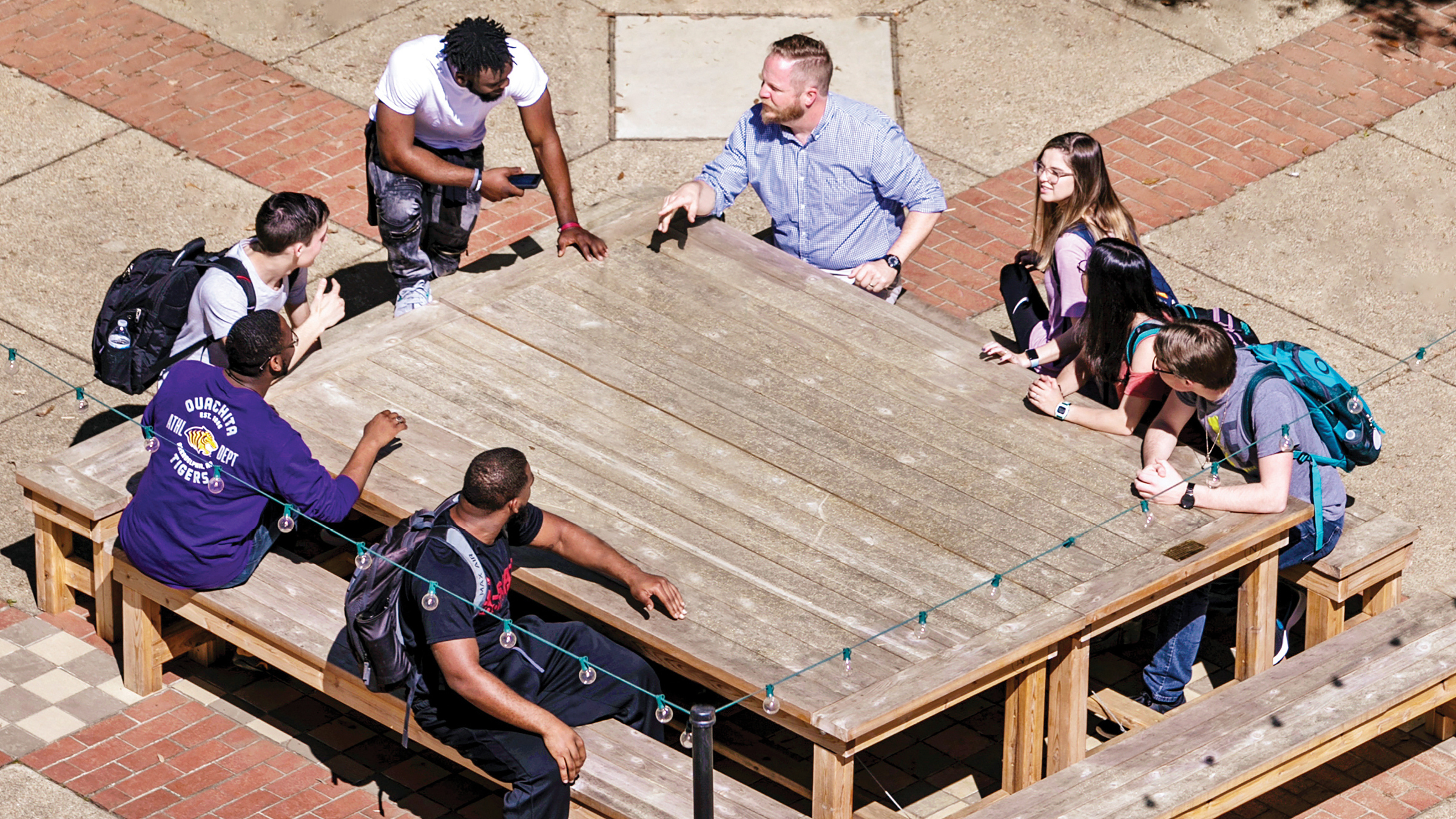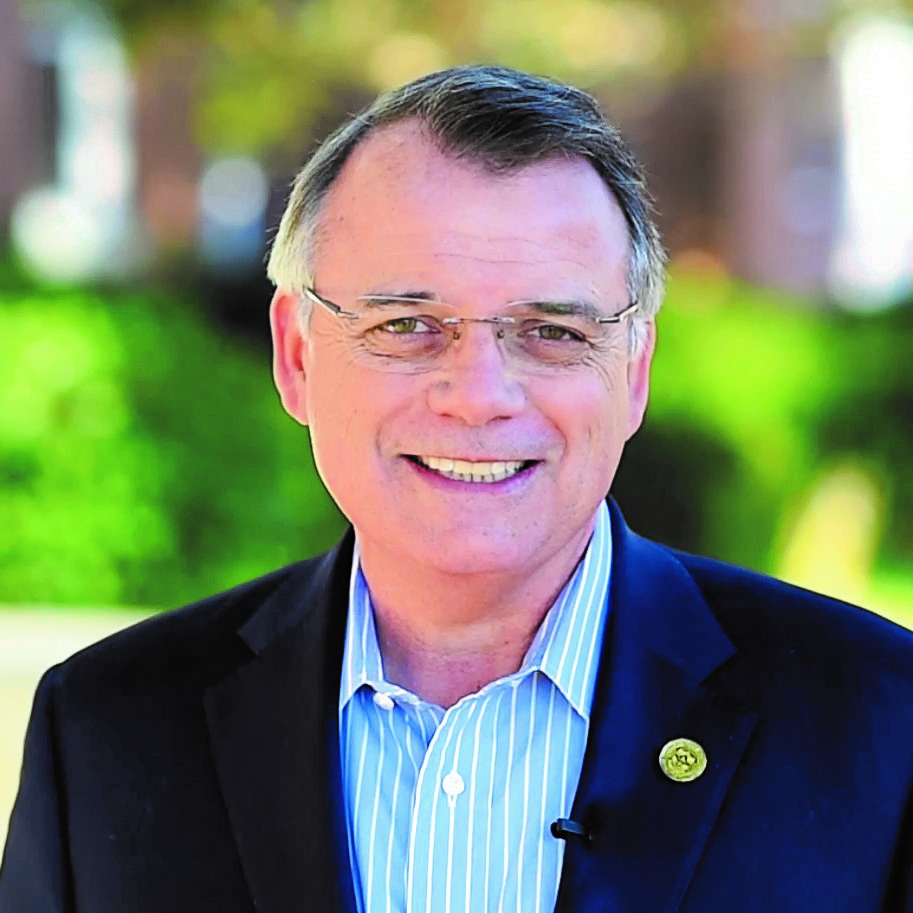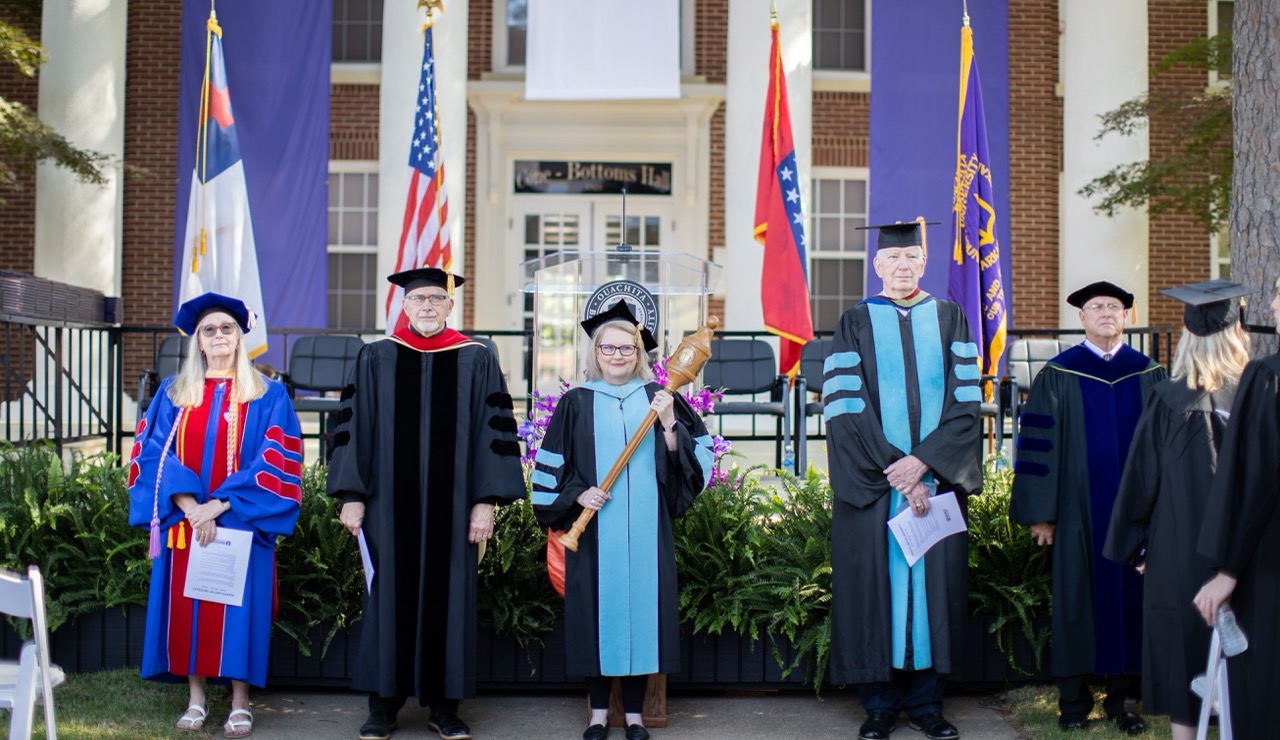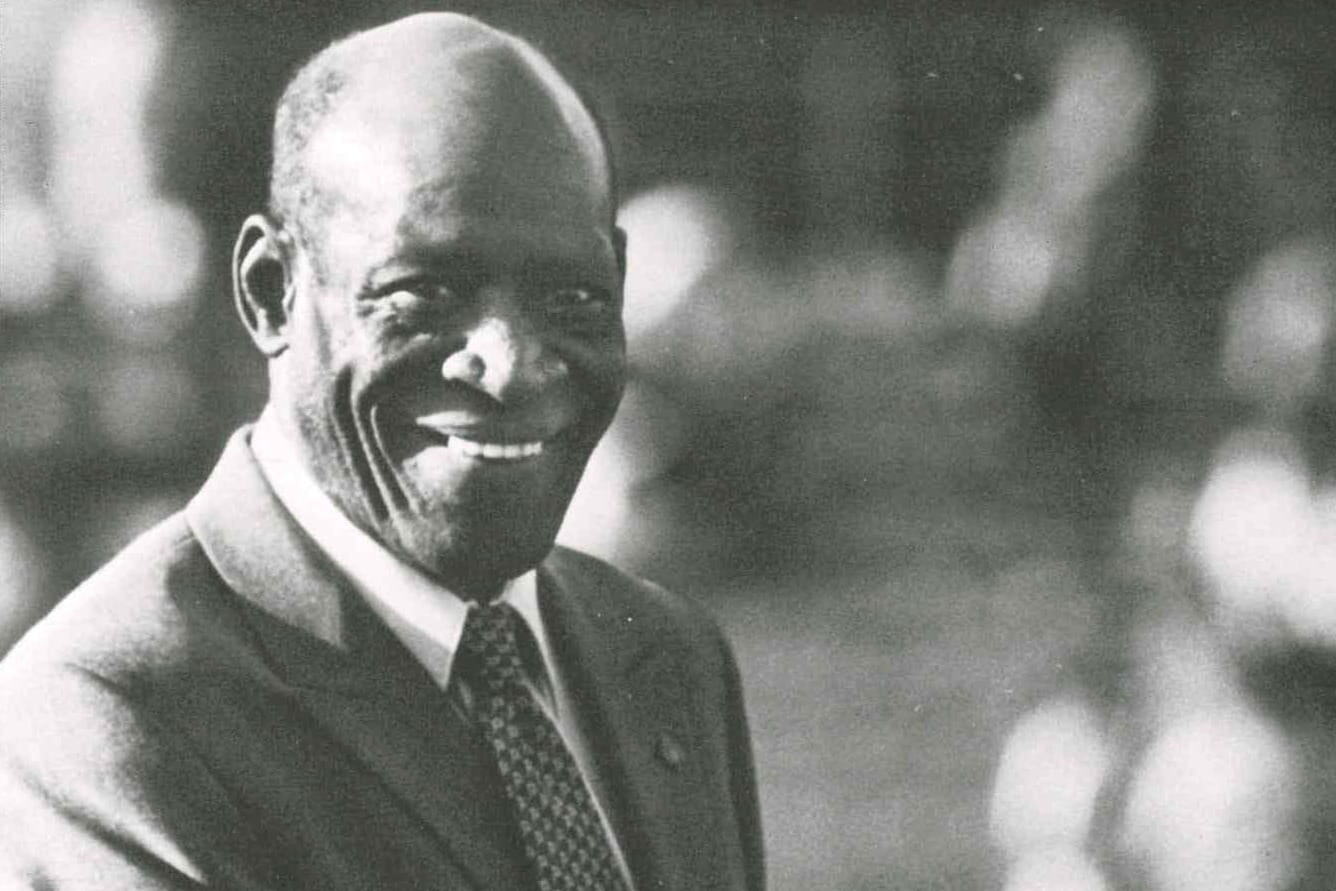Listening and leading toward biblical belonging
 March 11, 2021
- Ben R. Sells
March 11, 2021
- Ben R. SellsOuachita’s progress in recent years, much of which is referenced in this Circle, reflects the input and ideas from listening to responses from two questions in regard to our future: “What shouldn’t change?” and “What should change?”
Since arriving here in April 2016, Lisa and I have listened to many Ouachitonians answer these questions. We’ll continue to do so. Those answers guide our prayers and our work.
A part of our listening includes hearing the voices of our students and alumni of color. Their stories are both similar to and different from the white voices we’ve heard. Both groups share a deep appreciation for their Ouachita education and experience. But, far too often, our minority students and alumni tell us about feeling misjudged, misunderstood or mistreated by words and actions of students and employees – often unintentionally, but sometimes directly.
Listening to their stories about specific incidents of racial prejudice on our campus is not easy. Sometimes it’s extremely uncomfortable. But, Lisa and I believe that Dietrich Bonhoeffer was right when he said in his book Life Together, “The first service that one owes to others in the fellowship consists in listening to them.” Until we listen, we can’t understand how to make Ouachita a place where belonging is central to the outstanding educational experience our graduates always mention.
These stories of prejudice are not unique to Ouachita – it’s the experience of many people of color, especially Black and Hispanic students, at predominately white institutions. But it does not reflect God’s intent or design for us moving forward.
To create a culture of belonging for our students, we must “think Christianly” about racism and what it means for our university. Dr. Danny Hays, dean of Ouachita’s Pruet School of Christian Studies and a leading evangelical scholar on the theology of race, gives us two helpful statements to guide how we learn and live as a campus community:
All people are created in the image of God, and therefore all races and ethnic groups have the same equal status and equal unique value.
The picture of God’s people at the climax of history depicts a multi-ethnic congregation from every tribe, language, people and nation, all gathered together in worship around God’s throne.
Creating a culture of belonging for all races begins with a biblical basis, and our actions are driven by theological convictions. But there are other reasons – educational and demographic.
Differences among students cultivates learning. Engaging with people of different ethnicities and cultures develops intercultural competence, more important than ever to live, work and minister effectively in our local, national and global contexts.
The demographics of our country are changing, and those trends are already reflected at Ouachita. For example, 5.6% of our current students are Hispanic – our highest percentage ever. It mirrors population shifts in Arkansas and surrounding states.
As we work toward creating a campus culture where students and employees of color feel they do belong, it’s important to remember, as painful as it is, that until the mid-1960s, Ouachita prohibited Black students from enrolling. Our campus is now more racially diverse than ever: 16.4% of students are minority, 2.4% are international and 81.2% are white. About 12% of our employees are faculty and staff of color. Our progress is good news. I’m convinced that as we become increasingly diverse, we’ll be a stronger university as a result.
Ouachita doesn’t have a specific racial diversity goal for enrollment, but we do have a belonging goal. All college students have challenges, but the color of one’s skin shouldn’t be a challenge to feeling welcomed, accepted and supported on our campus. Belonging should be one of the defining experiences of every Ouachita student.
Lisa and I have listened to more than 200 students and alumni of color, and we have learned that Ouachita should be doing more to create this belonging atmosphere. We’re making progress, gaining ground. Ouachita, however, needed help in this ministry of listening, engaging and supporting students and alumni of color. It’s important work, worth focused attention at the senior leadership level – a first for Ouachita.
I met alumnus Dr. Lewis Shepherd in my first few weeks at Ouachita and we have worked alongside one another in the community for four years. Listening to his Ouachita story convinced me that he was the person to help us achieve our goal for every student belonging. Read more about Dr. Shepherd and his new role.
 By Ben Sells, PhD
By Ben Sells, PhD
@OuachitaPrez
You Also Might Like
Recent
Ouachita reports Spring '26 enrollment, led by 50% increase in graduate students
February 11, 2026




